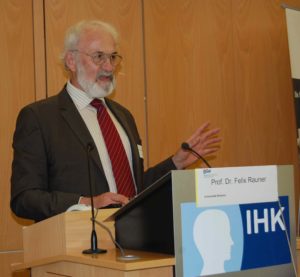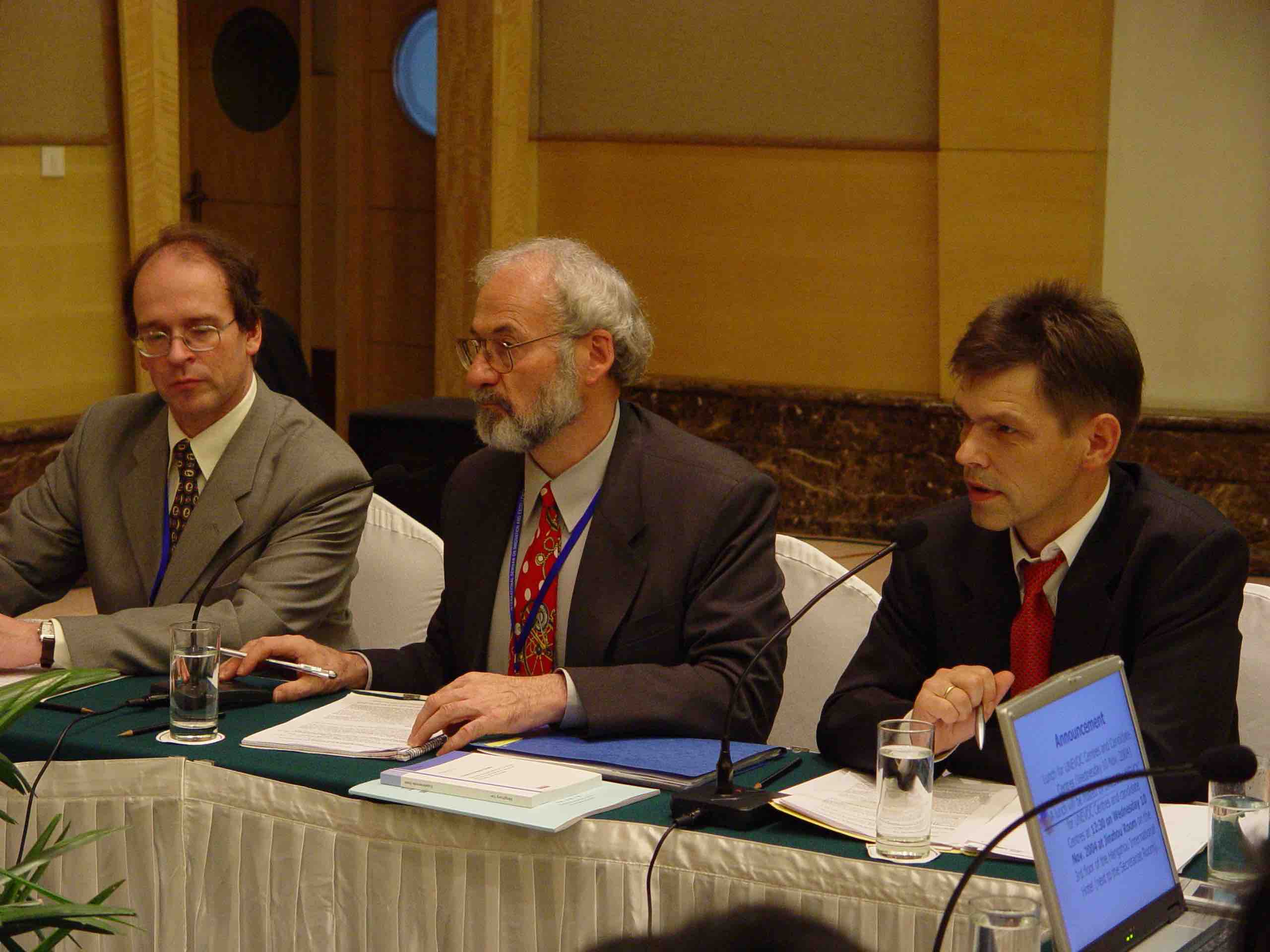During the first week of May this year Professor Felix Rauner celebrates his 80th birthday - and we celebrate with him: Congratulations and many happy returns! Given the corona-pandemic and the restrictions, there will be no party. And on such a day it is not so convenient to spend amply time in video meetings. Therefore, I have come to write a series of three blog posts on my memories of Felix and our cooperation.
In the first post of this series I have covered the early encounters and my cooperation with Felix and the research institute ITB during the years when I was working as a project manager of Cedefop (European Centre for Development of Vocational Training) from Thessaloniki, Greece. In the second post I covered a transitional phase years and some new initiatives that brought me to closer cooperation with ITB and Felix. In this third post I will give insights into the years when I was working at ITB and observed the newest initiatives of Felix from a close vicinity.
The Visiting Fellow from Finland joins in the ITB as a contracted researcher
I already mentioned in the previous post that I had got the status of Visiting Fellow (Gastwissenschaftler) at ITB and shortly afterwards a temporary job at a Finnish vocational teacher education college. During this temporary employment I tried to initiate cooperation between that college and ITB. This led to two short study visits and enabled my participation in the Hangzhou conference and the preparatory activities. However, my efforts did not lead into any substantial follow-up on the Finnish side.
Yet, my willingness to work with ITB was acknowledged and I was invited to join the institute as a contracted researcher. Here I am very thankful for Felix, who took the decision and to colleagues who had made the point that I was available. When coming to Bremen I was firstly asked to prepare the European follow-up of the Hangzhou conference. Then, shortly afterwards, I was asked to replace the coordinator of the EU-funded project on workplace learning partnerships. And in the next phase I was engaged in a series of European projects on training of trainers and in an Asia-link project on vocational teacher education.
When I got engaged with the said projects, Felix was already reaching the formal retirement age. Thus, he could give up his formal obligations as an ordinary professor. Instead, he was free to work more intensively in projects. As his newest flagship activity he launched the project 'Innovative vocational education and training (VET) 2010 (Innovative Berufsbildung 2010). This was a regional project that focused on the cities of Bremen and Bremerhaven. As have understood it, this project had been planned as a more complex one with several sub-activities. However, even as a reduced version, it served for Felix and his project team as a 'laboratory' for developing new research themes and new conceptual tools.

Felix Rauner speaking at a conference of German Chambers of Industry and Commerce
Insights into the newest initiatives of Felix
After the end of the Innovative VET project 2010 Felix moved on to lead the independent TVET Research Group IBB at the University of Bremen to continue some of the works that had been started in the project. From now on the main thrust of his work (together with his team) was to develop and test parallel tools that provided feedback on the quality of VET:
- The QEK-Tool (Qualität - Erträge – Kosten; in English: costs, benefits and quality) was designed as a self-assessment tool for VET providers to consider the balance between the quality of training on the one hand and the related costs and benefits on the other. With this instrument Felix and his team wanted to shift the emphasis from one-sided view on the costs of apprentice training to the benefits. In particular the productive contributions of apprentices and the increase of quality were to be assessed with the help of the instrument.
- The COMET tool was designed to assess the competence of apprentices (and vocational teacher candidates) to solve work process -oriented tasks that are relevant for their field. Here the ambition was to develop competence diagnostics that made transparent either achievements or deficits in vocational learning. This tool required cooperation between specially trained teachers who designed the tasks and rated the performance of those being tested. Here it is worthwhile to note that the tasks challenged the test persons to provide creative solutions. Likewise, the assessors were invited to recognize alternative solutions (instead of making distinctions between 'correct' or 'false' answers).
During the following years the team of Felix (including among others Uschi Hauschildt Lars Heinemann, and Dorothea Piening) carried out studies with these tools in different Federal states in Germany. Then, gradually the tools were used in international projects. As I remember it, they attracted a keen interest in Norway (Here, it was used in a project called COMCARE, a European comparison project with a special focus on health care professions). Then, COMET was introduced on several occasions in China, where it became part of a quality development instrument used in five provinces. And finally, it was and is still used in a complex research and development project in South Africa in a number of technical occupations in the fields of electrical engineering, mechatronics, and welding.
Indeed, as far as Felix was concerned, he would have been keen to continue with such activities, and some of his (former) project partners would have appreciated this as well. However, from the administration’s point of view this was no longer possible. After a transition period Felix was no longer authorised to sign contracts on behalf of the University of Bremen. Yet, although the time for such assignments has now come to an end, Felix continued as a very productive writer. It has been amazing to see how he has produced numerous books - one after another - with which he has documented his ideas and his life work. Respect!
---
I think that this is enough of my memories on Felix (greatly enhanced by comments of my colleagues) and on the the times I have been working with him - from Finland, from Greece and from Germany. I have learned a lot during these years and I am happy to congratulate Felix on his 80th birthday: "Years and more - many happy returns!"
More blogs to come (but from different perspective) ...








